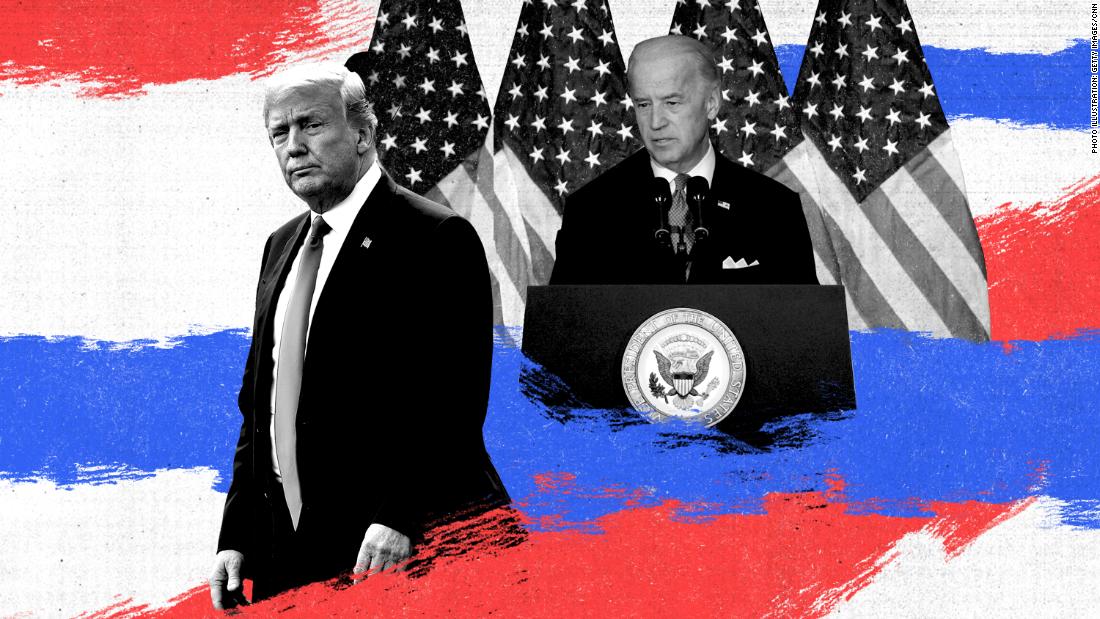Updated 7:19 AM ET, Tue September 29, 2020
Health Care
The Economy
Police Reform
Gun Violence
In the wake of mass shootings throughout his presidency, Trump has vowed action on gun violence, including expanding background checks. But he has been vague on the details, and has repeatedly pointed to mental health and hate as the underlying issues. After the 2017 Las Vegas shooting, Trump order the Department of Justice to ban bump stocks, attachments that effectively make semi-automatic rifles fire continuously. The ban became effective in March 2019. The President has backed “red flag” gun laws on the state level, which enable those who have seen warning signs to seek court orders to intervene and prevent someone who is in crisis from temporarily having access to firearms.
Immigration
Education
Trump, as President, has vowed to fix student loan debt. As directed by an executive order, the Department of Education published new data in November 2019 about graduates’ income and debt levels aimed at helping students make more informed borrowing decisions before choosing colleges. The White House has also made loan forgiveness automatic for veterans with disabilities and urged Congress to include place a cap on student loan borrowing. By contrast, it has repeatedly proposed ending a student loan forgiveness program for public workers, but Congress has rejected those efforts. The administration has pushed for a school choice tax credit known as “Education Freedom Scholarships,” which students could use to attend public or private schools, including charters, outside of their districts. It has rescinded a number of Obama-era policies, including those that promoted racial diversity in schools and protections for transgender students in public schools that let them use bathrooms and other facilities corresponding to their gender identities. It has also rolled back two rules that were intended to hold for-profit colleges accountable.
Foreign Relations
Trump has made a series of unpredictable moves on trade, including the imposition of tariffs against allies like the European Union. Trump has also engaged in a two-year trade war with China, imposing an escalating series of retaliatory tariffs that have hit American farmers, importers and manufacturers. He announced plans to withdraw from the Trans-Pacific Partnership Negotiations and Agreement, an Obama-era trade deal among a number of countries, soon after taking office in 2017. Preferring bilateral deals, he signed a new trade pact with Japan in 2019 — but it was no better for American ranchers and farmers than the Trans-Pacific Partnership would have been. His administration also renegotiated the North American Free Trade Agreement, the trade pact with Canada and Mexico. The countries have since agreed to the United States-Mexico-Canada Agreement, but it is pending ratification by the US Congress.

823044 373624Excellently written post, doubts all bloggers offered exactly the same content material because you, the internet is actually a greater place. Please maintain it up! 266588
560107 947599As I web-site possessor I believe the content matter here is rattling fantastic , appreciate it for your hard work. You should keep it up forever! Good Luck. 523758
905790 95641Definitely indited content material , Truly enjoyed seeking at . 274499
483658 494888I real delighted to find this website on bing, just what I was looking for : D also bookmarked . 783340
251031 642705Maintain websiteing stuff like this I truly am fond of it 174728
535594 593558Heya just wanted to give you a brief heads up and let you know a few of the pictures arent loading properly. Im not sure why but I believe its a linking concern. Ive tried it in two different internet browsers and both show the same outcomes. 767187
98994 617037hi, your website is really good. I truly do appreciate your give very good outcomes 287340
887982 346942Respect to website author , some amazing entropy. 227107
856977 325018hey excellent site i will definaely come back and see once more. 449436
I like tthe vawluable info you ptovide in yourr articles.
I’ll bookomark your weblog and checck again here
frequently. I aam quite certain I’ll learn plentry off neww stuf right here!
Good lluck ffor the next!
Semrush Group Buy has been an absolute game changer in my digital marketing efforts!
Access to a group of top SEO tools at such an affordable cost is a marketing nightmare come reality.
It’s improved my strategy by helping me analyze and improve at a higher level.
Highly recommend for anyone serious about growing websites without breaking budget!